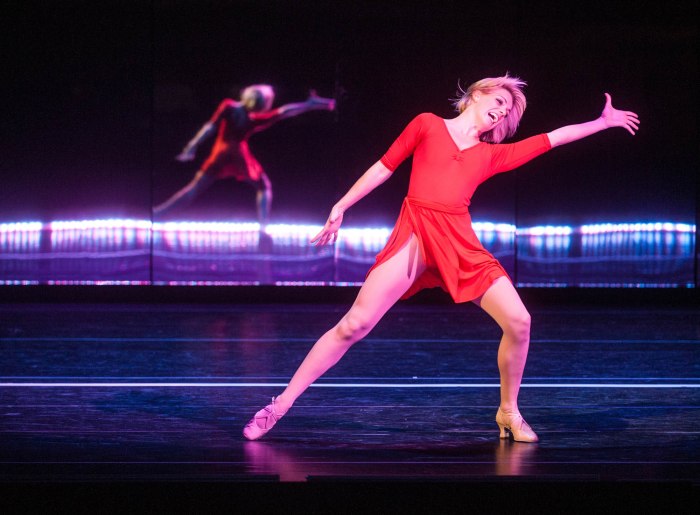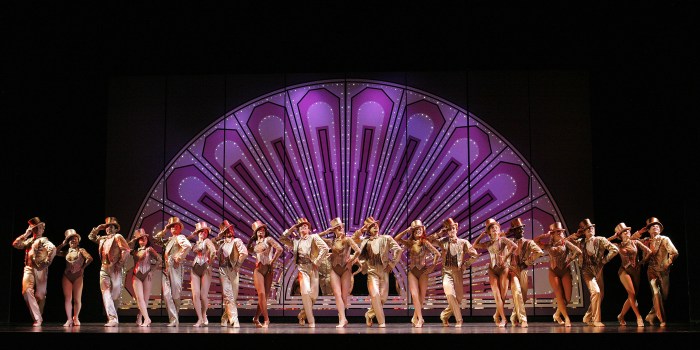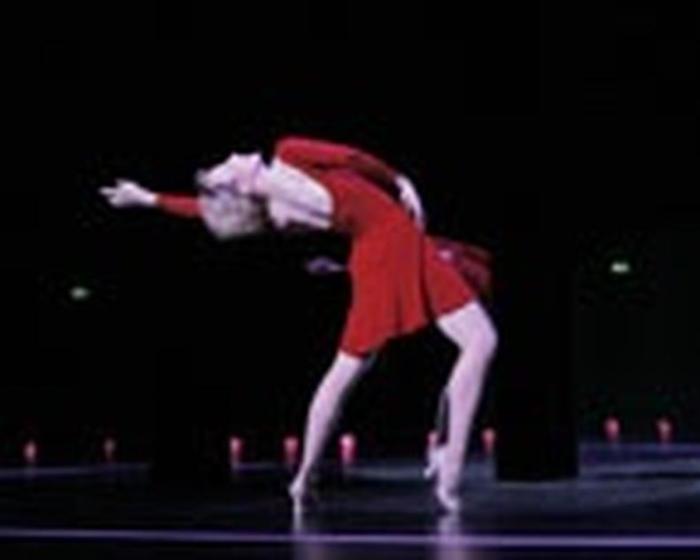A chorus line val monologue – Step into the spotlight as we delve into Val’s poignant monologue from “A Chorus Line.” This compelling character’s journey will resonate with readers, offering insights into the complexities of dreams, resilience, and the bittersweet realities of life.
In the vibrant world of Broadway, Val’s monologue stands as a testament to the relentless pursuit of passion and the challenges that shape our paths.
Character Analysis

Val, a prominent character in “A Chorus Line”, is a seasoned and multifaceted dancer with a rich background and complex motivations. Her journey in the musical provides insights into her personality, experiences, and the driving forces behind her monologue.
Background and Motivations
Val grew up in a small town, where her passion for dance emerged early on. Despite facing financial constraints, she pursued her dream, moving to New York City to join a professional dance company. Her unwavering determination and relentless pursuit of excellence have shaped her into a highly skilled and respected performer.
However, Val’s journey has not been without its challenges. She has faced setbacks and disappointments along the way, which have fueled her desire for success. Her monologue reveals her vulnerabilities, her longing for recognition, and her unwavering belief in her abilities.
Personality Traits
Val possesses a strong and independent personality. She is confident in her abilities, yet she also struggles with self-doubt at times. Her vulnerability and resilience make her relatable and empathetic.
Val is also fiercely competitive and driven. She is willing to work tirelessly to achieve her goals, but she can also be ruthless and uncompromising when necessary. Her determination and competitive spirit have both helped and hindered her throughout her career.
Impact of Experiences
Val’s experiences as a dancer have profoundly shaped her monologue. The challenges and triumphs she has faced have given her a unique perspective on the industry and on life itself. Her monologue is a reflection of her journey, her hopes, and her fears.
Through her experiences, Val has developed a deep understanding of the sacrifices and rewards that come with pursuing a career in dance. She has learned the importance of perseverance, resilience, and the power of belief.
Monologue Structure and Delivery: A Chorus Line Val Monologue

Val’s monologue in A Chorus Lineis a complex and emotionally charged piece that showcases her character’s inner turmoil and her struggle to find her place in the world.
Structure and Organization, A chorus line val monologue
The monologue is structured in a non-linear fashion, with Val jumping between different moments in her life and her thoughts about the present.
This fragmented structure reflects Val’s own fragmented sense of self and her difficulty in coming to terms with her past and her present.
The monologue is also organized around a series of key themes, including Val’s relationship with her mother, her desire for acceptance, and her struggle with her own identity.
Language, Tone, and Rhythm
Val’s monologue is written in a raw and confessional style, with Val speaking directly to the audience.
The language is often colloquial and informal, reflecting Val’s working-class background.
The tone of the monologue is often bitter and angry, but there are also moments of vulnerability and tenderness.
The rhythm of the monologue is often jagged and halting, reflecting Val’s own emotional state.
Delivery of the Monologue
The delivery of the monologue is crucial to its impact.
The actor playing Val must be able to convey the character’s complex emotions and her inner turmoil.
The actor must also be able to use their voice and body to create a sense of intimacy with the audience.
Themes and Symbolism

Val’s monologue explores several key themes, including the following:
- The power of dance
- The importance of individuality
- The search for identity
- The struggle for acceptance
The monologue is also rich in symbolism and imagery. For example, the chorus line is a symbol of conformity and anonymity, while Val’s desire to break free from the line is a symbol of her individuality and her search for identity.
The Power of Dance
Dance is a powerful force in Val’s life. It is a way for her to express herself, to escape from reality, and to connect with others. Dance is also a way for Val to find her own identity. She says, “I am not just a body.
I am a dancer. I am an artist.” Through dance, Val is able to find her own voice and to express her unique personality.
The Importance of Individuality
Val’s monologue also highlights the importance of individuality. She says, “I am not just one of the girls. I am not just a number. I am an individual.” Val wants to be seen for who she is, not just as a member of the chorus line.
She wants to be recognized for her own unique talents and abilities.
A chorus line val monologue is a powerful piece of theatre that explores the complexities of human relationships. The monologue is set in the 1950s, and it follows the story of a young woman who is trying to make it as a dancer on Broadway.
As she struggles to find her place in the world, she must also confront her own inner demons. The monologue is a moving and thought-provoking exploration of the human condition, and it is sure to resonate with audiences of all ages.
If you are interested in learning more about the monologue, I recommend checking out the truth project lesson 1 . The monologue is a powerful reminder of the importance of following your dreams, and it is sure to inspire you to reach for your own goals.
The Search for Identity
Val’s monologue is also a search for identity. She says, “I don’t know who I am. I don’t know what I want. I don’t know where I belong.” Val is trying to find her place in the world.
She is trying to figure out who she is and what she wants to do with her life.
The Struggle for Acceptance
Val’s monologue also explores the struggle for acceptance. She says, “I want to be accepted for who I am. I want to be loved for who I am.” Val wants to be accepted by her peers, her family, and by society.
She wants to be loved for who she is, not for who she thinks she should be.
These are just a few of the themes and symbols that are explored in Val’s monologue. The monologue is a complex and nuanced work of art that offers a rich and rewarding experience for the audience.
Cultural and Historical Context

Set in the 1970s, “A Chorus Line” reflects the social and cultural landscape of its time.
During this era, the United States was undergoing significant cultural shifts. The Vietnam War, the civil rights movement, and the rise of feminism had challenged traditional values and norms. This period also witnessed a surge in the popularity of dance and musical theater, influenced by the likes of Bob Fosse and Jerome Robbins.
Val’s Cultural Influences
Val’s character is shaped by her experiences as a working-class Italian-American woman in the 1970s.
- Italian-American Culture:Val’s Italian heritage influences her family values, sense of community, and strong work ethic.
- Working-Class Background:Val’s upbringing in a blue-collar family shapes her pragmatic and determined nature.
- Changing Gender Roles:The rise of feminism in the 1970s challenged traditional gender roles, influencing Val’s pursuit of a career in dance and her desire for personal fulfillment.
Social and Cultural Norms
Val’s monologue reflects the social and cultural norms of the 1970s:
- Importance of Family:Val’s decision to pursue her dance career despite her family’s disapproval highlights the changing values of the time.
- Work Ethic:Val’s unwavering determination to succeed in the competitive world of dance reflects the prevailing emphasis on hard work and dedication.
- Pursuit of Personal Fulfillment:Val’s desire to break free from societal expectations and pursue her passion for dance speaks to the growing emphasis on individual expression and personal fulfillment.
Dramatic Significance
Val’s monologue is a pivotal moment within the play, serving multiple dramatic functions.
Firstly, it propels the plot forward by revealing crucial information about the characters and their relationships. Val’s confession of her love for Don Lockwood exposes the underlying romantic tensions that have been simmering throughout the play. This revelation not only intensifies the emotional stakes but also sets the stage for the eventual resolution of the love triangle between Val, Don, and Kathy.
Character Revelation
- Val’s monologue provides profound insights into her character. It unveils her vulnerabilities, her unyielding determination, and her willingness to take risks for love. Her heartfelt words reveal the depth of her emotions, showcasing her as a complex and multifaceted individual.
- Furthermore, the monologue sheds light on the dynamics between Val and Don. Val’s confession forces Don to confront his true feelings for her, exposing the emotional complexities that have hindered their relationship.
Query Resolution
What is the significance of Val’s monologue in “A Chorus Line”?
Val’s monologue is a pivotal moment in the play, revealing her vulnerabilities, her determination to succeed in the demanding world of dance, and the sacrifices she has made along the way.
How does Val’s monologue reflect the themes of the play?
Val’s monologue embodies the play’s central themes of ambition, disappointment, and the pursuit of dreams. It highlights the sacrifices and struggles that artists face in their relentless quest for recognition and fulfillment.
What are some of the key literary devices used in Val’s monologue?
Val’s monologue employs various literary devices such as metaphors, similes, and repetition to create a vivid and emotionally charged narrative. These devices enhance the impact of her words and convey the depth of her experiences.